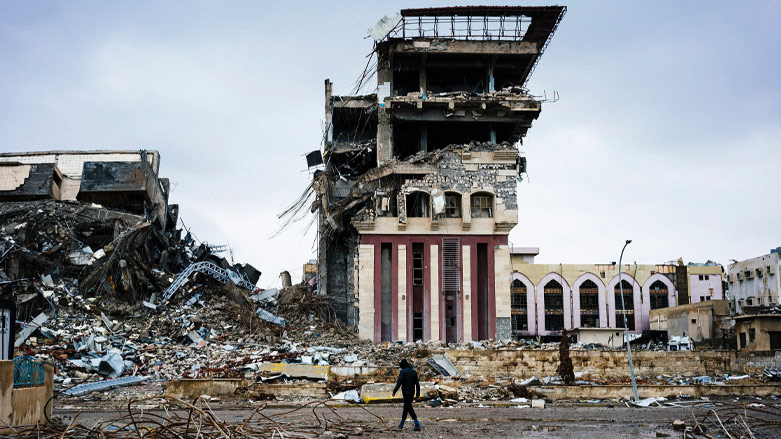Germany provides additional 22 million for post-IS stabilization in Iraq

ERBIL (Kurdistan 24) – The German Ministry of Foreign Affairs (MFA) recently contributed an additional €22 million (roughly $25 million) to a UN programme that finances “fast-track initiatives” in Iraq in areas liberated from the Islamic State (IS), according to a United Nations Development Programme (UNDP) press release.
The donation brings the ministry’s contribution to UNDP’s Funding Facility for Stabilization (FFS) to “EUR 80.2 million and the total support from the Government of Germany to EUR 209.9 million.”
“Enormous progress continues to be made across the liberated areas of Iraq, with seventy percent of those who were displaced during the conflict now returned home,” acting UNDP Resident Representative for Iraq, Gerardo Noto, said, according to the statement.
The aid will “help re-establish public services and rebuild social cohesion in the most vulnerable areas.”
“Germany continues to support Iraq’s stabilization efforts to shore up the progress made to date,” the German Ambassador to Iraq, Cyrill Nunn, said.
Berlin provides more funds to FFS through its Ministry for Economic Cooperation and Development implemented by Kreditanstalt für Wiederaufbau (KfW), a government-owned development bank.
The UNDP established the FFS mid-2015 at the request of Baghdad and support from the international anti-IS coalition, to “facilitate the return of displaced Iraqis, lay the groundwork for reconstruction and recovery, and safeguard against the resurgence of violence and extremism.”
According to the UN, “the Facility has a portfolio of over 3,000 projects – half of which are already completed – in the provinces of Ninewah, Anbar, Salah Al-Din, Diyala and Kirkuk.”
The FFS repairs “essential public infrastructure” and provides locals in areas affected by the onslaught of IS with short-term employment.
Baghdad has previously said the reconstruction campaign of the cities under IS control, including but not limited to Mosul, Tikrit, Ramadi, and Falluja, requires 80 to 100 billion USD.
Iraqi authorities already face many challenges in rehabilitating the infrastructure across the country, restoring stability to the affected areas, and developing the service sector as the country continues to rank atop the candidates for the most corrupt countries in the world.
Indeed, as the security situation remains unstable in liberated areas and with a chronic lack of basic services, the Kurdistan Regional Government’s Joint Coordination Center (JCC) has warned of a second exodus occurring, with many IDPs leaving their hometowns again to return to camps in the Kurdistan Region.
Editing by Nadia Riva
